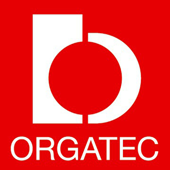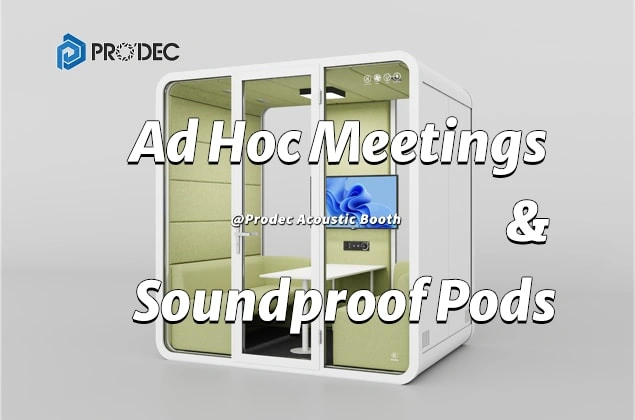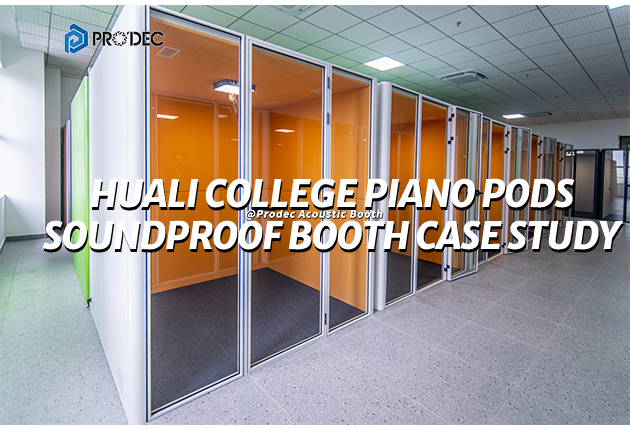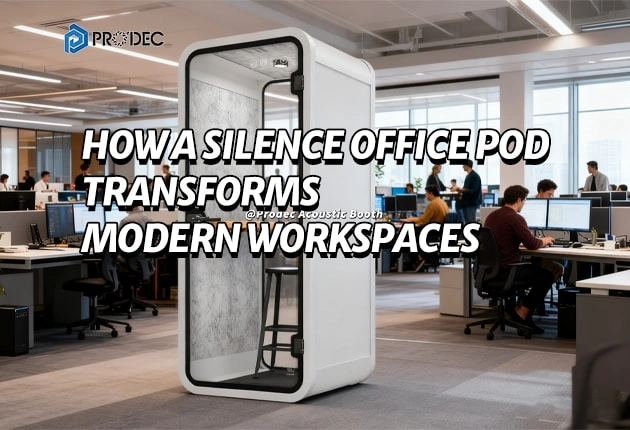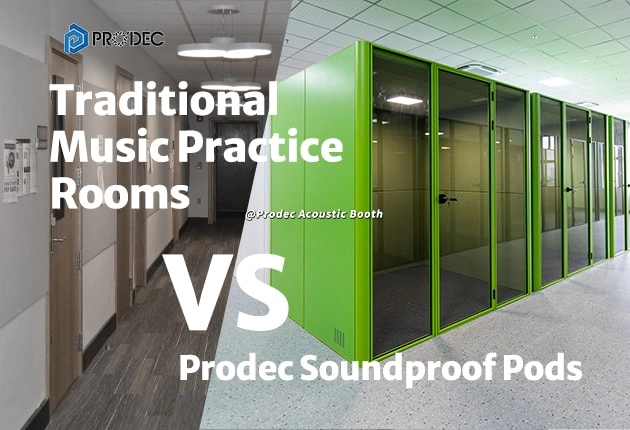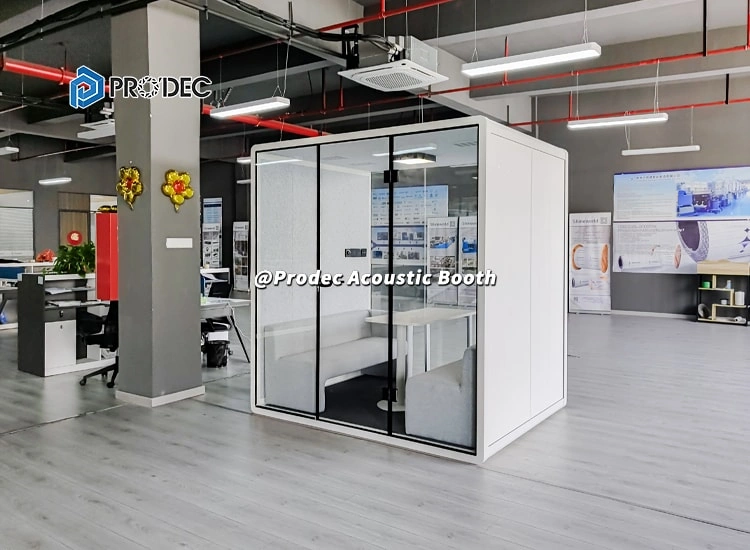


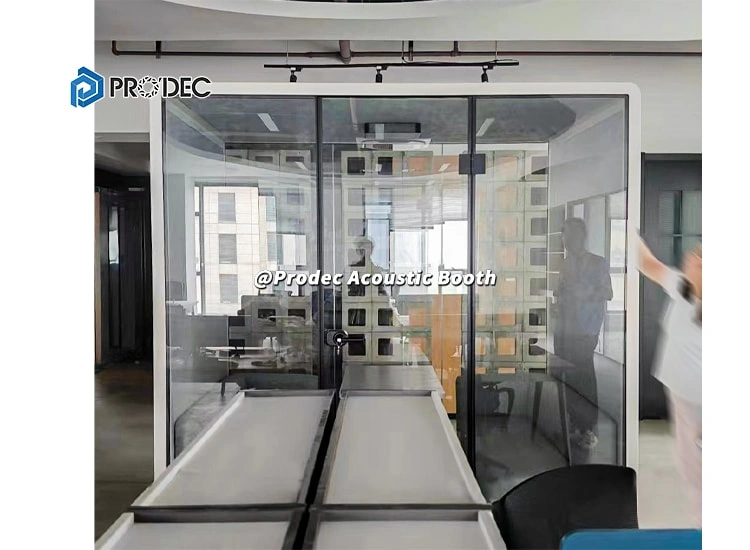
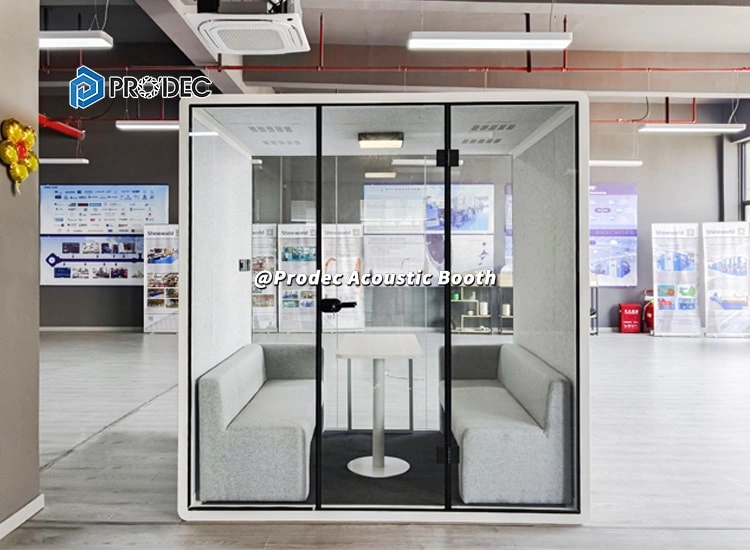
When businesses plan to expand office space or improve workplace privacy, two choices often come up: build traditional office rooms or adopt modular soundproof pods. While both approaches aim to create quiet, functional workspaces, their costs, efficiency, and flexibility differ greatly.
This article compares soundproof pods vs traditional office construction costs, helping organizations understand which solution delivers better long-term value.
The Hidden Costs of Traditional Office Construction
At first glance, building permanent rooms may seem straightforward. However, traditional office construction involves multiple expenses:
Architectural Design Fees
Building Permits & Compliance
Construction Labor Costs
Raw Materials (concrete, drywall, glass, etc.)
HVAC System Adjustments
Electrical & Lighting Installations
Furniture & Interior Decoration
Extended Downtime During Renovation
Future Renovation/Removal Costs
Limited Flexibility Once Built
These factors often drive the total cost per square meter much higher than initially estimated.
Cost Breakdown: Soundproof Pods vs Construction
| Factor | Traditional Office Construction | Soundproof Pods |
|---|---|---|
| Initial Cost | High (design, permits, contractors) | Medium, fixed unit price |
| Time to Deploy | 2–6 months | 4 hours per pod |
| Flexibility | Permanent, difficult to relocate | Modular, easy to move |
| Downtime | Requires office closure | Minimal disruption |
| Customization | High cost for changes | Configurable layouts |
| Furniture | Separate cost | Integrated desk, lighting, power |
| Air System | HVAC rework needed | Built-in ventilation |
| Noise Reduction | Dependent on materials | Designed for acoustic isolation |
| Maintenance | Ongoing building upkeep | Minimal, replaceable modules |
| Resale Value | Almost none | Pods can be resold/reused |
Why Soundproof Pods Are Cost-Effective
No permits needed – Pods are furniture, not structural changes.
Lower upfront investment – Pay per pod, not per renovation project.
Ultra-fast deployment – Installation takes less than 4 hours per pod.
Built-in features – Lighting, power outlets, and ventilation included.
Adaptability – Pods can be relocated if office layout changes.
Scalable – Add more pods as the team grows.
Sustainability – Made from eco-friendly, reusable materials.
Employee well-being – Better acoustics = improved productivity.
Future-proofing – Supports hybrid work, online meetings, and private calls.
Use Cases of Soundproof Pods
Phone Booths: Compact pods for private calls.
Meeting Pods: 2–6 people for collaboration without disturbing open-plan offices.
Focus Rooms: Individual quiet workspaces.
Hybrid Work Support: Perfect for video conferences and remote collaboration.
Companies like tech firms, universities, airports, and creative agencies are adopting acoustic booths as a flexible alternative to permanent construction.
Case Example: Comparing Real Costs
Traditional Construction: Building a 20m² meeting room in a Tier-1 city can cost between $20,000–$40,000 USD (design, permits, labor, and downtime included).
Soundproof Pod: A modular meeting pod for 4 people typically costs $2500–$4000 USD, delivered with furniture, ventilation, and lighting—installed in under 4 hours.
Result: Savings of up to 80% compared to construction, with far greater flexibility.
Trends: Why Companies Are Moving Toward Pods
Hybrid Work → Need for flexible spaces, not permanent rooms.
Rapid Growth → Startups prefer scalable pods over renovations.
Sustainability → Modular design reduces waste.
Design Integration → Modern pods match aesthetic office trends.
Workplace Well-being → Quieter spaces improve employee satisfaction.
While traditional office construction has been the standard for decades, soundproof office pods are reshaping the future of workplace design. They offer faster deployment (4 hours per pod), lower costs, and unmatched flexibility, making them the smarter choice for modern businesses.

